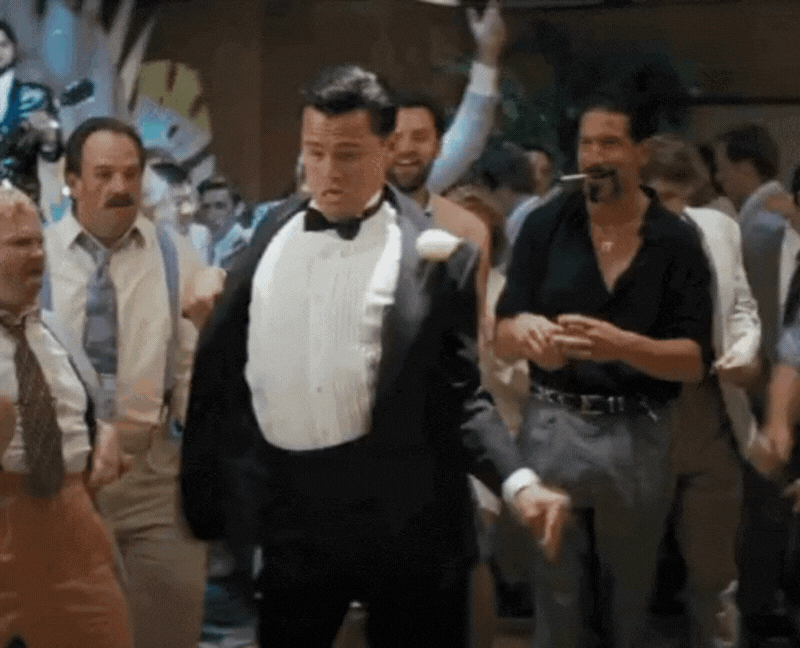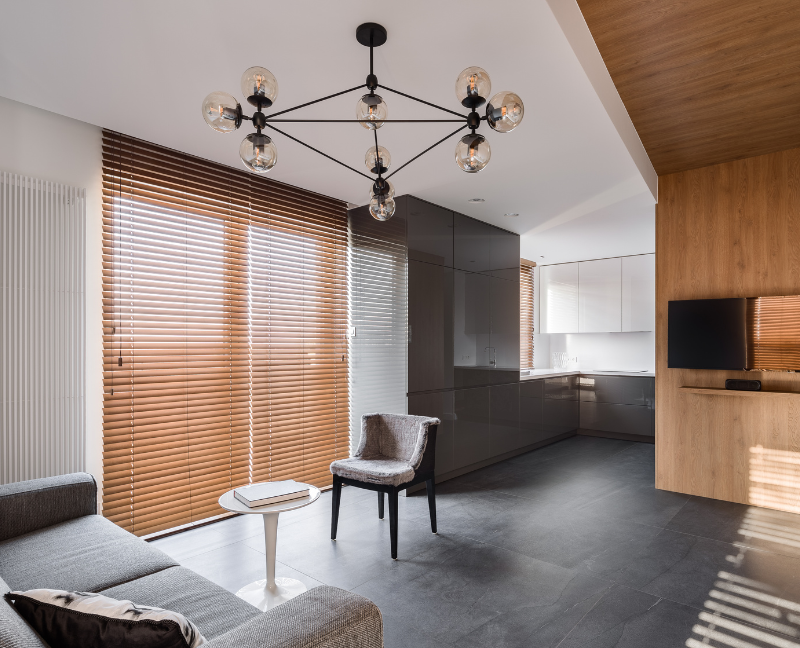"Less is more" provides a practical alternative in a society where distractions and clutter are widespread. The minimalist lifestyle fosters a deeper and more meaningful journey by removing excess and highlighting essential elements.
Prioritizing personal growth, relationships, and experiences over material possessions and superficial desires characterizes the minimalist lifestyle benefits.
As individuals increasingly strive to simplify and scale down their living environments, this minimalist lifestyle mirrors a broader cultural transition towards simplicity and sustainability.
If you're contemplating adopting a minimalist lifestyle, here are several reasons why you might be inclined to explore its minimalist lifestyle benefits.
Reducing the amount of things and activities you engage in is a necessary part of leading a minimalist lifestyle. This will allow you to live a life that is easier to access and less stressful. When there are fewer things to worry about and work on, you will have more time and attention to dedicate to the important things.
You can save money by becoming minimalist in a variety of ways. You can save money by purchasing fewer items that you don't need. Reducing the size of your living area is another way to reduce your housing expenses. You also require less space to store your belongings when you own fewer of them.
Minimalist living is another way to lessen its impact on the environment. You use fewer resources and make less waste when you make fewer purchases. Reducing your energy use and carbon footprint is another benefit of downsizing.
It is not enough to own fewer things to practice a minimalist lifestyle; one must also prioritize experiences over tangible goods. You can cultivate deeper ties with the people in your life and construct more significant memories if you concentrate on experiences rather than stuff.
Anxiety and stress can be brought on by feelings of being overwhelmed by clutter and mess. Make your environment more serene and calming by minimizing the amount of clutter in your life and streamlining your daily routine. This can be accomplished by reducing feelings of stress and worry and boosting your mental well-being,
If you have fewer things that could distract you, you can concentrate more on the essential things you need. This may help you become more creative and productive, ultimately allowing you to accomplish your objectives efficiently.
In addition, adopting a minimalist lifestyle can assist in developing gratitude. When you have fewer experiences and belongings, you create a greater appreciation for the things that you do have. The cultivation of a sense of gratitude and contentment in your life can be facilitated by doing this.
Conclusion
Simplifying your life, placing a higher value on experiences rather than material belongings, and decreasing your influence on the environment are all ways to make your life more satisfying and meaningful.
Therefore, if you are experiencing feelings of powerlessness due to clutter and distractions, consider having a minimalist lifestyle and observing how minimalist lifestyle benefits might improve the quality of your life.
Thriving in real estate is easier said than done. It's more than just being able to finish a deal; it's being there and able to catch up with the changes.
This year, the real estate market is still being influenced by consumer behavior, the economy, and technology. So, to succeed in this cutthroat market, real estate agents need to be flexible, hungry for knowledge, and skilled in a wide range of competencies. In short, having a static skill set is no longer adequate.
It's similar to having a well-drawn map for your professional progression to know the essential talents required of a real estate agent. It involves finding a balance between the complexity of customer service, the science of market analysis, and the art of negotiation. The essential abilities that form the cornerstone of a prosperous real estate agent will be examined in the ensuing parts, offering direction to individuals keen to become experts in the field and thrive in the dynamic real estate industry.
To negotiate the ever-changing real estate market, agents must be versatile. In 2024, real estate agent skills required interpersonal communication, market analysis, and digital skills.
Knowing what skills are needed to be a real estate agent, the agents have the potential to prosper in the always-developing real estate sector.

There are several ways to improve, from technical expertise to soft skills in interpersonal interactions. For real estate agents looking to enhance their abilities, consider this essential tip:
To stay competitive in real estate, agents must always learn what skills are needed to be a real estate agent and improve.
Technological advances, market changes, and customer expectations change real estate dynamics, redefining agents' tactics.
Making a house as attractive or stylish as possible is not the only goal of house flipping. It's about making the biggest return possible on each property -- just like real estate.
Although the rehabilitation costs of a distressed home may be covered by your fix-and-flip or bridge loan, funding is not the same as free money. One of the most important skills to have while learning how to flip a house is knowing how to use your renovation budget wisely. Performing the greatest house improvements at the lowest possible cost to optimize the home's worth should be the main goal.
Research and prepare before pulling apart a property to restore. Check local housing prices to see what buyers would pay and ROI. Therefore, check local home valuations and sales. After understanding the local real estate market, you must have home improvements. Work with a Realtor who knows your neighborhood to make wise renovation decisions.
Whether you're doing a major or minor project, these seven home improvements will increase your property's value.
Kitchens are vital for real estate investors trying to increase property value. It holds particular areas in people's hearts—a warm, inviting kitchen calls to us on some level.
Fully Renovated: Consider whether the floor plan is modern or efficient before removing all cabinets and fixtures in a complete renovation. Before buying granite or marble counters, try quartz or synthetic stones.
Specific Updates: Kitchen renovation ROI may be low. Consider darker stainless steel for a bolder design. Compare appliances with "provable" efficiency claims. A kitchen with old but serviceable cabinetry can be revived with paint.
Bathrooms show age second only to kitchens, and they always figure on lists of the most valuable home improvements.
Fully Renovated: Installing water-efficient and space-saving sinks and toilets can free up a room. Replace linoleum with sharper flooring to improve. Replacing the shower tile and tub can brighten a dull bathroom.
Specific Updates: Upgrade faucets, knobs, and other sink and bathroom fixtures. Another inexpensive upgrade that may transform a bathroom is cabinetry hardware. Home improvements can be cost-effective without a sophisticated updated floor plan or flashy installations.
Updates like new paint and flooring may seem simple, but they can increase your home value. The most significant effects are sometimes achieved with the simplest upgrades.
Fully Renovated: Some older homes have carpet and aged flooring. Wood is attractive, but you have other options. Bamboo flooring costs less and looks identical. Painting the whole house may renew it.
Specific Updates: Consider installing carpeting instead of hardwood or bamboo flooring in the upper level of your home if you conclude that new flooring is required.
It's essential to make an excellent first impression. The most valuable house upgrades are not limited to the home itself; they extend beyond the home itself.
Fully Renovated: The house's exterior ought to have a spotless appearance. It can be wise to spend money on complete landscaping, which includes lush green lawns and mulched gardens. Remove dead grass with resodding to add greenery.
Specific Updates: The entrance door can look cozy and welcoming with potted plants. Although maintained with few gardens, the backyard should be pleasant and constantly mowed. Design the front yard to draw people to the house. The backyard is just a starting place for the new homeowner to design their ideal yard.

One of the simplest ways to increase the value of your home on a tight budget is to replace the lighting fixtures in your house.
Fully Renovated: An elegant look can be achieved with recessed lighting. It makes a good buzzword for selling the property. Dimmer switches, which are inexpensive and easy to install, provide elegance. Always turn off the room's breaker before touching cords.
Specific Updates: Wattage and color temperature matter when replacing bulbs. A cooler bathroom can look clean with warmer kitchen and living room colors. Your flip may sell for more with minor stylistic changes that complement the home's style and the buyer's market.
The ability to impress buyers with accurate data is a significant benefit of energy-efficient upgrades. It will show them how better your property is than others.
Fully Renovated: Renovations should begin with new insulation. Average houses lose energy from a three-foot-square hole in the wall. Updating windows can also improve energy efficiency.
Specific Updates: Use LEDS in your home or advanced technology to turn your property into a smart home. This helps promote energy efficiency, lifetime, and electricity bill savings to buyers. Start with rebates and free energy audits—there are many government-funded energy efficiency programs to boost house value on a budget.
An expansion will never be a first step when flipping a home. Additions increase livable space but rarely return on investment.
Fully Renovated: Check out surrounding homes that have added extensions before hiring an architect. You can assess the cost-to-return ratio by looking at local sales to evaluate if the extension is worth it. Knowing how an extension will influence your budget from the start is crucial.
Specific Updates: With prefabricated outbuildings, installation is cheaper than ever. Increasing living space to welcome guests, rent on Airbnb, or store products is a significant house improvement, but it's expensive. Consult your realtor to verify a check that covers more than expenses.
Conclusion
Expert house flippers and rental property investors may assess a distressed property and determine what modifications yield the highest profits and how much to flip it for. First-time flippers should engage an experienced general contractor to manage repairs, but get multiple quotations and don't overdo it.
When it comes to dream homes, billionaires and celebrities are known for raising the bar too high, most of us weren't even sure if we could ever have homes like that. We mean tennis courts, spas and steam rooms, 10-car garages, in-home movie theaters, and more.
However, these well-known homeowners are distinguished by an additional degree of wealth: those who possess five or more residences.
In this post, we've compiled some of the most famous public figures who belong to the elite five-and-over club and have outrageous real estate holdings.

DiCaprio has come far from his modest Los Angeles childhood home. He started his profession at age five and has a net worth of $260 million. DiCaprio loves real estate and spends his riches on it. A Hollywood star has five California homes and many Manhattan luxury condos.
His properties include a $5.2 million Palm Springs midcentury-modern, a $2 million Hollywood Hills home formerly owned by Madonna, a $23 million Paradise Cove home, and a $13.8 million Malibu oceanfront house.
In 2021, DiCaprio sold his historically significant Los Feliz home for $4.9 million to Los Angeles native Miguel. Later that year, he paid Jesse Tyler Ferguson $7.1 million for Gwen Stefani's Los Feliz home and a $10 million Beverly Hills residence. He lives in a four-parcel, three-house property on Bird Streets in the Hollywood Hills with Madonna's former home.

As far as we know, Taylor Swift has eight residences totaling at least $84 million in real estate spread over four states. For $1.99 million in 2009, Taylor bought a 3,240-square-foot Music Row condo worth $3 million. She purchased a $2.5 million Nashville Forest Hills estate two years later.
She bought a $3.55 million Beverly Hills Cape Cod home in 2011. Her 2012 purchase was a $1.78 million single-story property with a pool, 1,000-bottle climate-controlled wine cellar, courtyard, and garden. The Grammy winner bought a $17.75 million 12,000-square-foot property in Watch Hill, Rhode Island, in 2013 and a $20 million duplex penthouse in Tony Tribeca in 2014.
Finally, Swift bought a $25 million Beverly Hills property in 2015. An $18 million townhouse and a $9.75 million condo were purchased by the megastar in 2017 next to her double penthouse. The celebrity properties assets amount to about $47.7 million on this particular Tribeca block alone.

The solo rapper and producer Kanye' Ye' West bought his first Hollywood Hills house in 2003. He bought the 1,500-square-foot condo for $1.9 million and the next-door condo for $1.25 million in 2006.
For $11 million, Kim and Kanye purchased their first Bel Air house in 2013. The couple bought their Hidden Hills property for $20 million after marrying Kim in 2014, excluding the renovation.
Kanye purchased a $57 million concrete beach home in Malibu in September 2021 and a Calabasas home on one acre. Recent real estate purchases by Kanye in 2021 sparked concerns. A mid-century Hidden Hills mansion across from Kim Kardashian cost the rapper $4.5 million.

Lingerie and beauty businesses and singing careers make Rihanna wealthy $600 million. That she has rented and owned $100 million homes in California, New York, England, and Barbados is no surprise. She paid $13.8 million for a 1930s Beverly Hills property in the Post Office district in March 2021.
Rihanna bought a $925,000 2,000-square-foot Wilshire Corridor high-rise condo in 2015. In 2013, Rihanna purchased a $21.8 million, 10,000-square-foot Barbados oceanfront house.
In 2017, she bought the Hollywood Hills Mediterranean for $6.8 million. Pacific Palisades' $65K-per-month estate was leased in 2012, and New York's $50K penthouse was rented from 2013 to 2017.
In August 2017, she bought a $2.7 million West Hollywood Mediterranean property.

The former Amazon CEO Jeff Bezos is the world's wealthiest at $140 billion. He has invested millions in a large real-estate portfolio from Washington to New York City. Jeff Bezos bought three adjacent New York City apartments for $80 million in June 2019, two months after his divorce from MacKenzie.
Bezos has two 5.3-acre Medina, Washington houses. His first home, a 20,600-square-foot, cost $10 million in 1998. A $53 million 8,300-square-foot house is the other. For $24.45 million in 2007, Bezos bought a Spanish-style property, and after ten years, he acquired a "modest" 4,568-square-foot house next door for $12.9 million since this estate was too small.
In 2020, Bezos bought the Warner Estate, which was created for former Warner Bros. executive Jack Warner. He paid $165 million for the 9-acre, most costly property in Los Angeles. Another 30,000-acre ranch is owned by Bezos 30 miles outside Van Horn, Texas. For $23 million in 2016, Bezos bought an old DC textile museum.

This celebrity real estate portfolio is insane, from her 18th-century Portuguese mansion to her six London properties. In 2007, Madonna expanded her UK holdings. She has a sixth London property, after a family townhouse, two staff houses, and two Kabbalah grounds.
Pop singer's $40 million Upper East Side apartment, bought in 2009, is famous. The singer bought two neighboring residences and united all three to create the perfect New York Home for her and her kids. Madonna just listed her Hidden Hills mansion for $26 million. In April 2021, she bought the nine-bedroom property from The Weeknd for $19.3 million.

Portia de Rossi and Ellen DeGeneres have bought and sold over 20 homes since 2003. The celebrity real estate portfolio started when she started The Ellen DeGeneres Show in 2003 when she purchased a $6 million Hollywood Hills house.
The couple purchased A Montecito property in 2007 for $15.75 million and sold it for $20 million. The dynamic duo expanded their estate a year later with a $29 million 9,200-square-foot house and two neighborhood homes. Their Thousand Oaks horse ranch sold for $10.85 million in 2013.
They paid $7.2 million for a Montecito property in 2017. They bought the Salt Hill home for $27 million in early 2019. Next year, they sold it for $33 million. September saw their $49 million purchase of a 4-acre Montecito property. After selling their Montecito property in 2017, the couple repurchased it in May 2021. They paid $14.3 million—nearly double the original amount. In addition, the star bought a modest Butterfly Beach beachfront property for $2.9 million.

Oprah Winfrey, a media tycoon, philanthropist, and producer, owns at least six homes, which is unsurprising. Her 2021 net worth is $2.5 billion.
Over the past 20 years, Winfrey has lived in Montecito, California; Miami, Chicago; Atlanta; Maui; Telluride, Colorado; and Orcas Island, Washington. Winfrey bought her 42-acre Montecito home for $50 million.
Winfrey bought nearby real estate to expand her Montecito holdings in later decades. In 2019, she bought a 4-acre complex from Jeff Bridges for $6.85 million, extending the ranch to 70 acres. Though she has sold many properties, Winfrey is reported to own at least six in the US.

They have a renowned celebrity real estate portfolio from Manhattan to West Hollywood. Legend bought a 1,105-square-foot East Village in 2005 before meeting his future wife. After meeting Teigen in a music video, Legend bought an earthy Hollywood Hills ranch house for $1.5 million in 2007. The pair paid $1.9 million for a Bowery two-bedroom, two-bathroom condo in 2009 while courting.
They bought an 8,520-square-foot Beverly Hills property for $14.1 million in 2016 and listed it for $17.7 million in August 2020. They bought two penthouses in an 1856 building in New York City after selling their one-bedroom home in 2016. The couple spent $5.1 million for a 3,440-square-foot West Hollywood home in April 2020. They paid $17.5 million for a 10,700-square-foot Beverly Hills mansion later that year.

Maroon 5 lead singer Adam Levine owns Beverly Hills, Pacific Palisades, and a New York luxury residence. Before marrying Behati Prinsloo, Adam Levine bought a $3.1 million Hollywood Hills bachelor apartment in 2005. The property sold for $3.5 million in 2013.
In 2012, Levine bought another Beverly Hills bachelor pad for $4.8 million. They purchased a $4.5 million SoHo condo in 2014 to move to the East Coast.
In 2017, Levine bought a 1960s French Regency home for $18 million.
In 2019, Ellen DeGeneres purchased the property from Levine for $45 million. In early 2019, Levine paid $32 million for Jennifer Garner's 1930s Pacific Palisades three-structure compound. A $22.7 million historic Montecito home is the newest property in the celebrity real estate portfolio.

The billionaires own several expensive properties. Jay-Z owned a 1,000-square-foot Brooklyn two-bedroom apartment. Jay-Z bought a $6.85 million Tribeca loft in 2008.
In 2005, Beyoncé purchased a $5 million Midtown Manhattan property before marrying Jay-Z.
The couple fulfilled their goal after buying a 30,000-square-foot estate in Bel-Air for $88 million in 2017. Very soon after, they purchased a $26 million Hamptons beachfront property.

This mom of two has $97 million in homes from Miami to Manhattan, including ones she shares with her ex-fiancé Alex Rodriguez. Ex-couple bought a home for $32.5 million in 2020. Lopez still owns her $28 million Bel-Air mansion from 2016.
Lopez purchased a $20 million Manhattan home with four bedrooms and a Madison Square Park terrace after her 2014 divorce from Marc Anthony. The Hamptons is a celebrity vacation, so Lopez had to settle there. She got an eight-bedroom property here for $10 million in 2013.
Do you know any other celebrities who belong to the elite five-and-over club? Feel free to drop them in the comments!
Among the world's most creative businesses is the real estate sector. It innovates and adapts continuously to stay ahead of the ever-changing market.
However, it can be challenging for businesses to keep up with these changes and achieve their major goals.
In this post, we'll help you understand how trends in digital transformation will affect your business in the upcoming years to ensure your business stays on the cutting edge of technology in 2024 by paying close attention.
Real estate businesses use data analytics to find buyers/sellers, create digital marketing campaigns, and set listing pricing.
Artificial Intelligence (AI) will boost digital analytics in 2024 by focusing on predictive analysis to assist investors in making faster, more personalized decisions.
Intelligent AI will help businesses serve clients with better information. Real estate agents and corporations can utilize machine learning algorithms to study enormous data sets and identify consumer behavior patterns to offer personalized solutions and services.
A good disruption is anticipated to be brought about in every area due to this digital trend, and the real estate market is expected to be resistant to this digital transition.
By 2024, a digital technique called anticipatory design might gain popularity. It can be applied to anticipate client requirements and hyper-personalize their interaction with a company (by suggesting goods or services they might find interesting, for example).
Other industries like travel, cars, and entertainment are already hopping in this digital trend. By 2024, it will quickly become the new standard in real estate. Applications that employ machine learning to forecast what consumers want from their homes based on variables like age, family life, professional aspirations, and so forth are already under development.
Because of automation and artificial intelligence (AI), omnichannel engagement is rapidly becoming a norm for many businesses. Realtors and related businesses can communicate with several individuals simultaneously with omnichannel engagement, irrespective of the medium they utilize.
Customers will engage with your business through various digital platforms, so it stands to reason that they will anticipate seeing their potential real estate listings there as well. With just one internet search, they should be able to retrieve all the information and assets they want from any device at any time.
One digital signing trend to watch is the usage of eSignature. Digital signatures eliminate the need for paper contracts and save time by doing away with tedious paperwork processing stages required to close real estate transactions because they are legally binding.
Not only does it simplify document signing, but it also offers borrowers more significant control over document management. As we advance, intelligent workflows, including eSignatures—like sequential and parallel document signing—will be the standard, simplifying the signature process everywhere.
With capabilities like online walkthroughs and 3D views from all angles employed by developers to improve the end-user experience, digital journeys have begun to play a significant role in real estate plans. Millennials are not accustomed to bureaucracy, so companies can benefit from digital transformation real estate by replacing cumbersome paperwork with interactive digital experiences.
Digital journeys have the potential to enhance various digital trends in real estate processes, including:
Digital journeys will improve real estate businesses' complete user experience by 2024. The digital experience relies on digital journeys to streamline company activities and boost consumer satisfaction.
The process of construction management can be difficult and time-consuming, particularly for big projects like the building of shopping centers or other infrastructure. In 2024, there will be a significant shift in the construction industry due to the scarcity of raw materials and the increased adoption of digital technology.
In this regard, digital technologies like AI and the Internet of Things (IoT) will be necessary. Construction managers may save time and money by integrating digital and traditional tools, such as RFID tags, to monitor progress in real-time and ensure that projects are completed on time by eliminating the need for manual inspections.
Realtors are searching for new digital platforms that they can utilize to market real estate projects and properties effectively as the field of digital marketing gets more and more competitive. As more people of all ages become aware of VR and augmented reality (AR) by 2024, experts predict that tools like VR tours and AR visualizations will be in high demand among real estate agents looking to outperform their rivals.
Especially for online property sales, digitalization is a significant benefit. Realtors can provide potential buyers with a virtual tour of their house using these digital trends in real estate, which will become popular in the coming years.
Virtual reality can improve real estate transactions by eliminating geographical borders and offering potential purchasers a "digital walkthrough" of homes they want to buy or rent.
Despite technological advances in recent years, realtors have struggled to track every transaction in different cities or countries due to a lack of technology integration between finance, operations, and other departments. Realtors will have global access to real-time market trends, client data, and sales leads by 2024 because of the rising popularity of cloud-based applications.
Since it gives customers precise industry insights, real estate transaction transparency will improve customer experience and brand reputation. Data-driven internet marketplaces would do more than match suppliers and shoppers. This digital change will likely positively disrupt every sector, including the real estate market.
Crowdfunding is primed to become immensely popular in real estate as businesses search for innovative channels to acquire funds. With the lure of pre-booking their preferred houses, these digital trends in real estate will help them generate money and draw in potential buyers.
In part 2, we'll dive deeper into digital transformation real estate trends, so be sure to click this.
As winter blankets the world in snow and chilly temperatures, the real estate market undergoes a distinctive transformation. While the conventional perception ties the peak home-buying season to spring and summer, the winter months unveil a unique array of opportunities for both buyers and sellers. Join us as we delve into essential tips for successfully navigating the winter real estate market, regardless of whether you're in the market to buy or sell a property.
Are you ready to make a move in the winter real estate market? Whether you're selling your property or searching for your dream home, RE/MAX Advanced Realty is here to guide you through the process. Our experienced agents understand the nuances of the winter market and are dedicated to helping you achieve success. Contact us today to get started on your winter real estate journey.
Navigating the winter real estate market requires a strategic approach and an understanding of the unique opportunities and challenges this season presents. By focusing on curb appeal, creating cozy interiors, leveraging technology, and remaining flexible, both buyers and sellers can make the most of the winter real estate landscape. Whether you're selling a property or searching for your dream home, the winter months offer a distinct chance to achieve success in the real estate market with the support of RE/MAX Advanced Realty.
As winter takes hold, homeowners frequently contend with escalating energy bills stemming from heightened heating requirements. Nevertheless, prioritizing winter energy efficiency doesn't necessitate compromising on comfort or enduring the chill. In reality, by taking a few strategic measures, you can maintain a warm and snug home while concurrently cutting down on energy consumption. Explore these savvy strategies that empower you to establish an energy-efficient sanctuary without bidding farewell to comfort.
Seal the Leaks:
Optimize Heating Systems:
Leverage Natural Heat:
Upgrade Insulation:
Seal and Insulate Ductwork:
Invest in Energy-Efficient Appliances:
Maintain Fireplace Efficiency:
Regularly Replace Furnace Filters:
Use Ceiling Fans Strategically:
Practice Energy-Efficient Habits:
By implementing these winter energy efficiency tips, you can enjoy a warm and comfortable home without the burden of skyrocketing energy bills. Not only will these measures contribute to cost savings, but they also align with sustainable living practices, making your home more environmentally friendly. Embrace the chill with confidence, knowing that you've taken proactive steps to make your living space energy-efficient during the winter months.
One of the most important steps in selling your home is to stage them for a virtual tour photo shoot. But how do you virtually stage a house to ensure high-quality results?
In this post, you'll find seven practical tips to achieve excellent shots.
Since virtual tours are frequently a person's first impression of a location, the property must ensure that the impression is positive by preparing ahead of time.
Not every business or property will require the same level of preparation because they are unique. Before a photographer starts taking pictures of the facility, there are a few things that all property owners should check off their checklist.
Taking virtual tours in an empty or sparsely populated area is advisable. Inform guests and tenants that certain common areas might be closed temporarily while preparing the property. You may even post signs telling people not to enter. Discuss with the residents of the apartment complex to ensure that the patios and balconies are free of obstructions.
Consider taking a picture of the property before opening if the business is a food or retail establishment. While the sun will be out, this will prevent people from appearing in your photos.
Decluttering is one of the simplest yet most important parts both in staging and selling a home.
Remove all paper, post-it notes, and other random stationery from tables, desks, and worktops. If there are any boxes, make sure they are put away and hidden—clear dry-erase boards.
It's advisable to unhook and store away any visible wires while plugged in when taking pictures. These objects may obscure the critical details you wish to get in your shots.
It should go without saying that even the tiniest dust particle or stain will be captured. After dusting everything, open a window to let some fresh air enter. Check for stains on all pillows, linens, and furniture, and replace or clean as needed.
Wipe all windows (inside and outside) to eliminate streaks, grime, and smudges. Dust blinds and push newly pulled drapes. If you have draperies or blinds, ensure they are always drawn or pulled in each room.

Nobody wants dull, flickering, or differently colored light bulbs. Check the proper function of each light. Turn on the interior lights for outdoor shots if you capture them in the evening.
Ensure monitors and television screens function correctly and have consistent displays if you need to turn them on. It's preferable to keep those off.
Make the decor visually appealing. Lamp shades, frames, and wall art must all be straight. Arrange the decor according to your preferences and what seems the most sense. Steer clear of seasonal decor, such as Halloween or holiday lighting. This is how your virtual tour will be dated.
One of a virtual tour's most important views is the exterior, so be sure it looks good.
From the entrance, move vehicles out of sight as well as garbage cans. Put hoses and gardening tools away as well. Make sure paths are free of debris.
If it hasn't been done recently, you should give your landscaping a makeover by replacing dead plants with fresh blooms. Additionally, remember to mow your yard freshly.
Lastly, looking into the home before the photo session can reveal things you missed during staging and planning. The best way to do this is by standing in the middle of the room and slowly checking every nook and cranny.
Look for anomalies. Go through the corridors and common spaces to review your prep checklist. What seems odd is wrong. Don't overlook anything before the shot.
These virtual tour tips provide a comprehensive guide on effectively staging a house for virtual tours. The guide ensures a visually appealing and timeless presentation by emphasizing key aspects such as decluttering, cleaning, proper lighting, decor arrangement, and outdoor grooming.
Checking everything thoroughly before the photo session underscores the importance of attention to detail in optimizing the virtual tour experience.
Knowing where to begin shopping for the ideal pair of blinds is difficult because so many alternatives are available. When thinking about how to choose blinds for your home, there are a few essential considerations you should bear in mind, and this post will show you what they are.
To help you know which blinds to choose, here are some questions to guide you:
Smaller windows are ideal for blinds due to their functionality and aesthetic appeal. Blinds suit smaller windows proportionally, making light and privacy adjustments easier. Larger windows can make installing and operating blinds difficult due to their size and weight.
Blinds on smaller windows look clean and classy due to their precision. Fitted shades give the window a modern look that matches its small size. This adds a touch of refinement and optimizes the possibilities for a well-balanced and visually acceptable window treatment option in places where more enormous alternatives may be overwhelming or impossible.
Selecting curtains or blinds is essential for maximizing the space's aesthetic appeal and practicality when designing a small living area. Curtains can provide the impression of grandeur because of their flowing design and voluminous fabric, but they can also make a small window feel claustrophobic.
On the other hand, blinds are a valuable and compact substitute that fits nicely with the limitations of smaller apartments. Their inconspicuous look is enhanced by their streamlined form and flexibility to stack or roll up neatly, which lets natural light flood the space without being overpowering.
Because of their versatility, blinds are an excellent option for small living areas since they can be used as a practical instrument for light control and an attractive window treatment that blends in with the cramped layout of small flats.

Double blinds are the most effective, as they minimize the day's glare and preserve privacy during the night hour. When the light is allowed to pass through certain types of materials, they bring forth a great deal of texture.
The presence of these elements enhances the atmosphere in the room. We provide a variety of materials that can be used to achieve the desired level of seclusion, whether with a great deal of light coming in or with no light at all. Blinds are challenging to clean, which is a disadvantage of using them.
Blinds that operate by hand and motorized are both offered by the market. Usually, the motorized ones are designed for windows that are out of reach. If you choose a manual one, test it in the store to ensure the mechanism works smoothly. When blinds are built to be no wider than four feet, they are usually easier to operate.
You can choose colors, patterns, and materials once you know exactly where, how many, and which blinds to choose will work best for you. Blinds are now available in innovative natural materials, like those made of hibiscus or banana fibers, for people who prefer earthy tones. The traditional chatthai remains a highly favored option and a valuable addition to outdoor areas.
Bottom Line
Another method for identifying colors is a "mood color board." This season's delicate colors give way to colorful ones, and floral designs are also quite fashionable. While changing your window displays' look might be costly, having blinds with a simple design, such as neutral shades, lets you easily switch up your bed linens and pillows.
Understanding the current state, intricacies, and uncertainties of the real estate market in general and your neighborhood in particular is crucial as you develop your real estate profession.
While the status of the national economy can significantly impact the real estate market, several recurring, yearly, and seasonal elements could also impact local buyers and sellers.
This post will share some important details about real estate seasonality and the factors that affect it.
Why Is Real Estate Seasonality Important?
Real estate seasonality refers to the idea that seasonal variables like holidays, weather, and more may cause fluctuations in the real estate market, including home prices and the number of homes available for sale.
Seasonality is a concept used in real estate. If you grasp these seasonal characteristics, you will be more equipped to succeed in your neighborhood's real estate market as you work toward earning your real estate license.
What Are The Seasonal Factors In Real Estate?
Some seasonal factors are universally present, even though various regions of the country could each have unique, specialized seasonal factors. Below are the five seasonal factors in real estate:
As the weather becomes cooler and we get closer to the winter months, one of the real estate market trends we see across the country reveals a tendency for the market to slow down.
As a real estate agent, you must know that business will be slow during winter. These seasonal factors in real estate may occur for various reasons; however, it is necessary to identify the possibility of slow business.
Many people have many things to do in the winter because of holiday commitments, work deadlines, and other end-of-year tasks and responsibilities. This typically means that even people interested in moving in the future are not interested in making such a move during the holiday season, which slows down commerce.

If any of your customers have children, they are much less likely to move during the academic year. This is especially true if they have many children.
In addition to the possibility of moving within a school district, the school year brings many extracurricular activities, duties, and constraints that parents may not have to negotiate to buy or sell their home.
When it comes to moving, many people take into account the seasonal weather. This is true even though colder weather tends to delay the property market.
If you work in real estate in an area with cold autumns and considerably worse winters, fewer people wish to move throughout October, November, and December.
On the other hand, even though summer is traditionally the most popular period to relocate due to a combination of climatic and academic considerations, there is a possibility that the demand for housing will increase dramatically in the spring.
During this time of year, there will likely be many offers and opportunities for negotiation, regardless of whether or not the supply can meet the demand.
Conclusion
Success in real estate requires understanding seasonality. Holidays, weather, and the school year affect the market. Real estate agents must master these seasonal factors in real estate to succeed in the local market and adjust to shifting conditions.

8313 W. 10th St
Indianapolis IN 46234
dennis@indyhomepros.com
317-316-8224